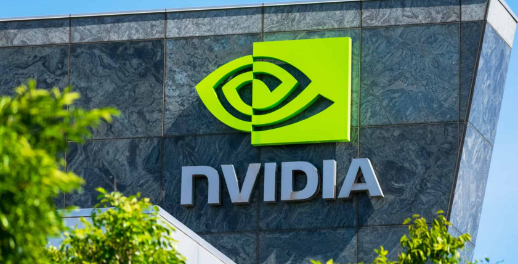How NVIDIA Could Become The First $4 Trillion Company
More than two years ago, NVIDIA made history as the first chipmaker to surpass a $1 trillion market capitalization. Now, an even more astonishing milestone is within reach—the company is on track to b

More than two years ago, NVIDIA made history as the first chipmaker to surpass a $1 trillion market capitalization. Now, an even more astonishing milestone is within reach—the company is on track to become the first $4 trillion enterprise.
Since its April low, NVIDIA's stock has surged 64%, driving its market cap to $3.78 trillion and surpassing Microsoft's $3.70 trillion, reclaiming its position as the world's most valuable company.
With an expanding customer base, demand for NVIDIA's latest AI accelerators remains robust. Bullish investors widely believe the chipmaker's stock still has significant upside potential.
Aziz Hamzaogullari, Chief Investment Officer at Loomis, Sayles & Co. and founder of its growth equity strategy team, stated: "We believe that NVIDIA is truly uniquely positioned and that it will sustain its position over the next decade-plus."
NVIDIA's $6 Trillion Market Cap Forecast Amid AI Spending Boom
Hamzaogullari isn't alone in his optimism. This week, Loop Capital analyst Ananda Baruah raised NVIDIA's price target from $175 to $250, implying a potential market cap of around $6 trillion. Baruah maintains a "Buy" rating on NVIDIA and projects annual AI spending by various clients could reach nearly $2 trillion by 2028.
In a June 25 research note, Baruah wrote: "While it may seem fantastic that NVIDIA fundamentals can continue to amplify from current levels, we remind folks that NVIDIA remains essentially a monopoly for critical tech and that it has pricing (and margin) power."
The optimism surrounding NVIDIA and other AI hardware makers contrasts sharply with earlier this year when the relatively low-cost development of advanced chatbots like DeepSeek sparked concerns about spending cuts among NVIDIA's clients. Instead, U.S. tech giants have ramped up investments in computing infrastructure.
According to analyst consensus estimates, Microsoft, Meta, Amazon, and Alphabet are expected to allocate roughly $350 billion in capital expenditures in the upcoming fiscal year, up from $310 billion this year. These companies account for over 40% of NVIDIA's revenue.
Risks Behind NVIDIA's Rapid Growth
However, NVIDIA's rally isn't without risks. The company's reliance on TSMC for chip production exposes it to potential disruptions from Trump-era trade policies.
Meanwhile, NVIDIA's largest customers may shift their spending strategies in the coming years. Many are developing their own chips to avoid NVIDIA's premium pricing.
Dan Davidowitz, Chief Investment Officer at Polen Capital Management, commented: "The valuation depends on the persistence of growth, and we already know that NVIDIA's largest customers are trying to figure out ways to be more efficient with their spending, not just with NVIDIA, but also offloading to their own silicon. You have to have very robust assumptions to get comfortable with the valuation, and we just don't have a good enough view on what that demand looks like."
Currently, NVIDIA trades at a forward 12-month P/E of 32x, compared to the S&P 500's 22x.
Despite this, Loomis Sayles' Hamzaogullari remains unfazed by NVIDIA's valuation. He firmly believes AI will transform society and that NVIDIA will remain a primary beneficiary as productivity gains materialize:"That doesn't mean it will be steady Eddie all the time, that there won't be disruptions in spending, but this is a secular structural change, and NVIDIA remains one of the biggest beneficiaries. The stock still looks attractive given that backdrop."
Disclaimer: The views in this article are from the original Creator and do not represent the views or position of Hawk Insight. The content of the article is for reference, communication and learning only, and does not constitute investment advice. If it involves copyright issues, please contact us for deletion.